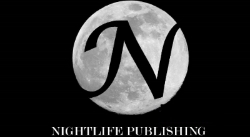"Life's not a track meet. It's a marathon." Ice Cube
Recently I wrote a piece
about marketing my first novel (See Marketing
the Independent Novel). Many of the comments on that article fell into
three camps; some thanked me for sharing my experience, others pointed out the
vague and confusing path to marketing success and many encouraged me to just
keep writing. I appreciated all the feedback, but it's the last concept that
was the most important to me, because it reinforces a basic concept in
independent publishing; success often comes from building your
bibliography and your craft, rather than from a single bestseller
The Road to Mastery
Supporters of independent publishing stress the benefits of releasing several titles over time:
- Barry Eisler and J.A. Kornath talk about the cumulative effect of a growing library in their self-publishing discussion Be the Monkey
- Hugh Howey highlights the impact of treating publishing as a long term business and not a one of shot in the dark in his Salon article
- Stephen King refers to paying your dues through both publishing and being rejected in his book On Writing
These specific ideas
about long-term, constant improvement go beyond publishing to almost every human
occupation or skills set.
- Malcolm Gladwell said in his book Outliers that it takes about 10,000 hours to perfect a skill.
- Robert Greene echoes this time frame in his book Mastery, claiming that competence takes about seven to ten years of diligent practice to achieve.
Measuring the Process
One of the problems with
the multiple book/ mastery concept is measurement. Just how many books does one
need to write? How do you count 10,000 hours of "publishing
practice"? The answer is subjective, but I try to look at it by dividing
the hours into books.
The basic question is
'How many hours does it take to imagine, plot, write, edit, format, market and
release a novel including the website and social media content'? I haven't
timed it, but 1,000 hours is about 42 full days. I wouldn't be surprised if
publishing a book from first inspiration to marketing online took at least
2,000 hours. At that rate, you could reach 10,000 hours in five or six books.
Because my calculations are broad generalizations and because I normally take
twice as long to get anything done, I'm thinking that after my tenth book my
writing and my publishing skills will be strong enough for me to be an
overnight success.
The point is, whether
you look at the phenomenon from the number of books or the time it takes to become a great publisher (and not just a great
writer) there is very little support for the idea that you can release one
book and achieve all of your creative and financial goals.
The Hidden Struggle
One difference between
independent publishing and the traditional route is the public nature of your
growth. If you spend years submitting work to agents and then more time
struggling to secure a publisher, improving your craft all the while in
relative obscurity, when you succeed it might appear as if you burst on
the scene and took the world by storm. That might have even been the story that
is used to market the book. But that's not how it happens for most people.
Writers like Stephen King, J.K. Rowling and Anne Rice could have easily spent
their 10,000 hours under the radar, but their success involved just as much
work as it will take for you and me. We just didn't get to see it.
Of course, I'm
not suggesting that everyone who releases ten books and spends 10,000 hours
becoming an independent publisher will have success. There are a lot of
writers with more skill than me who have put in their time and not seen the
results they wanted. All I'm suggesting is that success after several releases
is more viable and realistic than striking gold with your first book. It is
also more fun and less stressful. Why fret over the sale of one book when you
can take the long view of your publishing empire?
Have fun.
Gamal
Gamal

